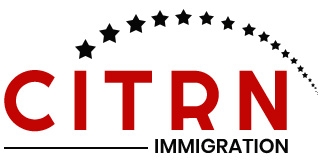
Claim Refugee Status from Inside Canada: Who Can Apply?
Claim Refugee Status from Inside Canada: Who Can Apply?
Historically, Canada has led the world in providing a safe haven for those fleeing persecution, war, and violence. There is a formal process by which people already in Canada can claim refugee status and protection. Not everyone can apply, and there are some key things to know about who might qualify and how the process generally works.
In this blog, we will take a look at the eligibility to make the claim, the process of making a refugee claim from inside Canada, and what applicants can expect during the process.
Who Can Apply for Refugee Status Inside Canada?
An application for refugee status from within Canada is allowed if an individual can prove that he/she is persecuted or is in danger in their native country. The following are the criteria which define who can apply for refugee status:
- Victims of Persecution :
Those persecuted or fearing persecution on the basis of their race, religion, nationality, political opinion, or affiliation to a particular social group (which may include gender identity, sexual orientation, or ethnicity) may be granted a refugee status. - Victims of Violence and War:
These include people from conflict areas where violence has become the order of the day, and returning home is unsafe. - Those at Risk of Cruel and Unusual Treatment:
Refugee protection could further be accorded to individuals who face torture, cruel treatment, or punishment in their home country, which violates minimum standards of international human rights. - Stateless Individuals:
Stateless individuals who cannot return to the previous country of residence may be granted refugee protection. - Persons Already Inside Canada :
Only those who are on Canadian soil can submit a claim for refugee status. It includes those who legally or illegally entered the country and then seek protection from within.
Who Is Ineligible to Seek Refugee Status in Canada?
Though Canada is quite generous with its refugee protection program, not everyone can qualify for the status of a refugee. They include:
- Those Who Have Previously Made a Claim :
One who has previously made a claim for refugee status in Canada, which was denied or abandoned, will no longer be able, under ordinary circumstances, to submit another claim. - Those Recognized as Refugees in Other Countries:
A person is not allowed to apply if they already enjoy refugee status or protection in another country. - Those with Criminal Convictions :
Those who have been convicted of serious crimes, most especially those related to human rights or terrorism, cannot be granted refugee status in Canada. - Those with Safe Alternatives:
Refugees who can find protection in a safe third country are not eligible to make a claim in Canada. For instance, under the Canada-U.S. Safe Third Country Agreement, individuals who come to a Canadian land border from the United States may be found ineligible unless they fall within an exception.
The Inland Refugee Claim Process
Once an individual decides he or she wants to apply for refugee status from within Canada, then there is a particular route to take. The following is a generalized overview of the major steps involved:
- Making the Refugee Claim :
Individuals may make a refugee claim upon arrival in Canada at a port of entry -such as an airport or border crossing-or at an Immigration, Refugees and Citizenship Canada (IRCC) office from within Canada. They would then undergo what is referred to as an eligibility interview in which the claim is either found eligible to be heard or not. - Eligibility Determination:
An immigration officer will interview the individual in order to decide if they are eligible to make a refugee claim in Canada. A person is not eligible if they have previously made an asylum claim, if they have committed a crime and the Board states that they should face trial, or if they can return to a country where they can be protected. If the officer finds them to be eligible, the claim is then referred to the Immigration and Refugee Board of Canada (IRB) for a hearing. - Hearing Preparation:
Consequential, the claimant is then served with a notice of the date of the hearing before the IRB. During this hearing, a refugee claimant shall be compelled to provide evidence to support a protection need. The claimant shall narrate his persecution, grounds for fleeing, and substantiate such evidence with documents, photos, or even witnesses. Refugee claimants are supposed to find themselves a legal representative so that their case can be presented accordingly. Many provinces make provision for free legal aid services to help refugees pursue their claims. - The Hearing:
This will be a hearing, whereby the applicant or claimant will be presenting their case before a member of the IRB at the Refugee Protection Division (RPD). Upon that day, the RPD will hear evidence, testimonies from any witnesses, and interrogate one another to assess whether the applicant qualifies for refugee protection status or not. - Receiving a Decision:
Following the hearing, the RPD will make a decision in the refugee claim. If a claim is approved, the claimant is deemed to be a protected person, and is permitted to remain in Canada and apply for permanent resident status. If the claim is rejected, the claimant may be required to leave Canada, although they may be given an opportunity to appeal the decision.
Legal Rights and Protections for Refugee Claimants
The refugee claimants possess the following legal rights during the processing period in Canada, too:
- Right to Remain in Canada : The claimants can stay in Canada until a decision is made.
- Access to Healthcare : Refugee claimants may be covered under the Interim Federal Health Program (IFHP) for all basic medical services.
- Work Permits : Refugee claimants, while their claim is in process, may apply for a work permit to support themselves and contribute towards the economy of Canada.
- Education and Social Services: Refugee claimants are entitled to educational and social services, such as language training and settlement services, which provide them an opportunity to integrate themselves into Canadian society.


Looking for safety and a fresh start in Canada?
Explore refugee sponsorship programs and begin your journey to a new life.
Contact us today for support and guidance.

